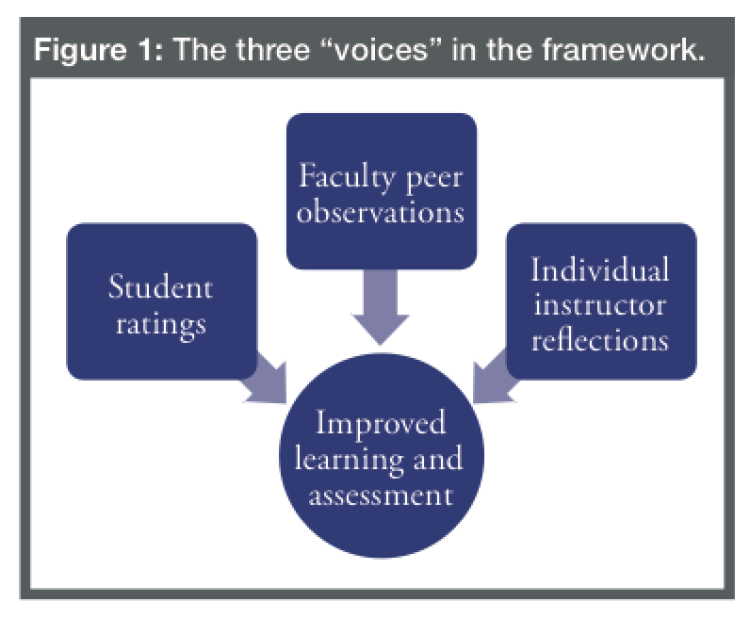About TQF

The Teaching Quality Framework (TQF) initiative facilitates departmental and campus-wide efforts to provide a richer evaluation of teaching to enhance the value of high-quality teaching and reward scholarly approaches to improving student learning.
The TQF team will work with interested departments to develop and adopt a new framework for supporting and assessing teaching. The framework draws from multiple sources of evidence of high-quality teaching, including the instructor’s materials, peer feedback, and student voices. The teaching quality framework is grounded in the scholarship of higher education, including the work of Bernstein and colleagues (2002, 2010) and Glassick and colleagues (1997). It defines teaching as a scholarly activity like research. In this way, teaching can be conceptualized in terms of seven core components of scholarly teaching — goals, content, and alignment; preparation for teaching; methods and teaching practices; presentation and student interaction; student outcomes; mentorship and advising; and reflection, development, and teaching service / scholarship. To garner support and recognition of scholarship in these areas, one can use three “voices”: from the faculty member being assessed, their students, and their peers. The framework supports improved teaching by providing standards for development to help faculty improve their teaching practices. The framework categories are held constant across all departments; however, the interpretation of these categories and their relative weights are defined at a department-by-department level, providing the university with a common approach to assessment while preserving disciplinary identity and specificity.
For more details on the TQF initiative, please see our Resources page which includes a single-page summary and a longer white paper describing the initiative.
TQF Partners and Affiliates
The TQF initiative is part of the consortium of leading-edge institutions that make up the TEval: Transforming Higher Education - Multidimensional Evaluation of Teachingproject to promote and study the use of scholarly approaches to teaching evaluation. We are funded by the National Science Foundation (NSF, #1725959) and the University of Colorado Boulder (College of Arts and Sciences, College of Engineering and Applied Science, and Leeds School of Business). TQF also benefits from strong ties with many local and national affiliates, including the Bay View Alliance (BVA) and the Association of American Universities (AAU). A list of partners, affiliates, and collaborators can be found below.
CU Boulder partnerships:
- Center for STEM Learning (CSL)
- College of Arts and Sciences
- College of Engineering and Applied Science
- Leeds School of Business
- Office of Information Technology (OIT)
- Academic Technology Design Team (ATDT)
- Arts and Sciences Support of Education Through Technology (ASSETT)
- Faculty Teaching Excellence Program (FTEP)

